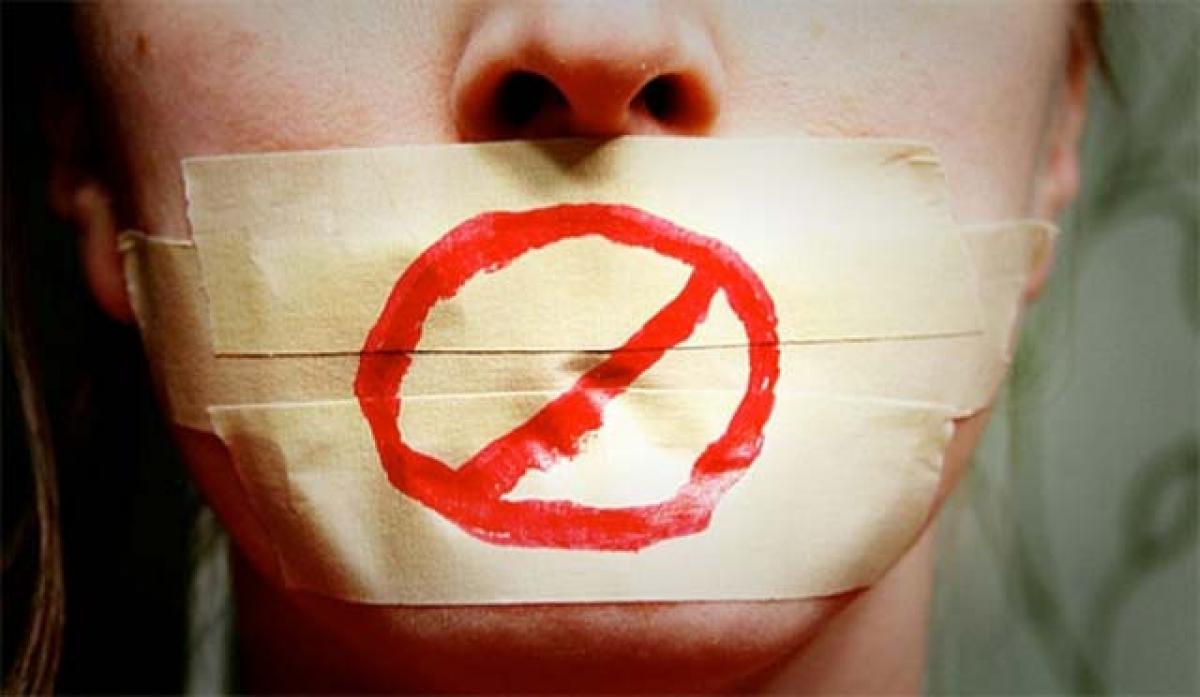Live
- India among top countries in artificial intelligence adoption
- The Must-Have Denim Fits For The Season
- Fire Service Week farewell program held at Anantapur
- Manage Your Liver Health and Boost Your Energy
- District SP conducts surprise inspection at Karnataka Border Check Post
- YSRCP has shown what good governance means in 58 months: CM
- Summer skincare secrets: Protect your skin from sun and heat
- Forces within & outside the country joined hands to defeat me, PM Modi says in Karnataka
- SSC results to be released on April 22
- Fake currency seized from house along India-Bangladesh border in Bengal
Just In

Further, the court rejected apprehensions that criminal defamation would reduce the nation to a “frozen democracy.” In its view, the reputation of individuals is as important as free speech and a fundamental right of every citizen.
Even as the nation was rejoicing at the Supreme Court’s verdict of annulling Section 66A of the IT Act 2000 as restoration of freedom of speech and expression, it received a shock when the Court decided to continue the 150-year old Indian Penal Code section wherein defamation is both a civil and criminal offence.
Further, the court rejected apprehensions that criminal defamation would reduce the nation to a “frozen democracy.” In its view, the reputation of individuals is as important as free speech and a fundamental right of every citizen.
In fact, the judgment considered protection of individual right as “imperative” to maintaining “social stability.” This verdict, some believe is an affront to freedom of speech, particularly to investigative journalism which has been instrumental in exposing a number of corruption cases recently.
Undeniably, for Subramanian Swamy this is a setback and adds obstacles in his journey towards clean politics. Besides him, Gandhi and Kejriwal other prominent leaders including Karunanidhi, ex-Assam and Delhi Chief Ministers Tarun Gogai and Sheila Dikshit are facing defamation charges in different courts.
As it stands, political speeches and media discussions are marked by personal allegations and accusations based not always on court verdicts but many times on the findings of individual searches, news reports and investigative journalism, leading to several defamatory litigations by affected people and organisations which are pending in courts.
Besides, under the Section 499 of the IPC, a speech that is intended to harm the reputation of any person is treated as a crime and is punishable with fine and imprisonment which might go up to two years.
Thus, defamation is made a dual offence – civil and criminal. The wording of this Section is broad and has the effect of discouraging and even silencing critics for fear of defamation cases. Criminal slander places many constraints on free speech than civil defamation.
Notably, criminal defamation is an invention of 16th Century British Common Law. It was limited to only a civil crime. However, this law was incorporated in the IPC without reference to duels or public order. The English Law allows actions for libel in High Courts for any published statements alleged to defame “named or identifiable individuals”.
Companies are also considered legal persons and permitted to bring libel suits for defamation which might cause loss in their trade or profession and damage their reputation in the opinion of sensible persons. Exemption is given for fair criticism and for privileged statements like Parliament speeches.
One’s reputation is considered as a basic element of Article 21 pertaining to life and liberty. The judgment states that balancing fundamental rights is a Constitutional necessity and it is extremely difficult to subscribe that criminal defamation would have a “chilling effect on freedom of speech”.
While the onus is in on the defendant to prove the truth of his statements, affected individuals have to prove actual malice in the declarations to claim damages.
Recall, the question of unreasonable restriction on freedom of speech arose in the Supreme Court in 1994 in a case involving the Tamil Nadu Government. Following the judgment of the American Supreme Court, which stressed the importance of “breathing space” for free speech, the Supreme Court was inclined to put spokes on “defamation” by applying it only to deliberate statements of falsehood and those made with malicious intent.
The verdict introduced protective standards for speeches on the lines of the American law. But, this applied to civil defamation while criminal libel continued strictly as before. In the latter case, the defendant has to prove that his statements are made in “public interest.”
Clearly, there are differences of opinion on defamation law in countries. However, the general trend in democratic countries is that criminal defamation law is more likely to curb freedom of speech and expression than positively protect the reputation of anybody.
After all, reputation cannot be safeguarded by silencing critics with threat of imprisonment. Civil law has enough powers to prevent false propaganda. In regard to cancerous growth of corruption, nepotism and misuse of official power and positions, we need more openness in transactions, more dissemination of information and constant exchange of facts and opinions.
No wonder, the UN Commission on Human Rights has been advocating abolition of criminal defamation laws and its replacement with appropriate civil laws. We need to research and amend our law on defamation in such a way as to encourage constructive criticism and exposure of truth however unpalatable, without encouraging circulation of falsehood.
By Dr S Saraswathi

© 2024 Hyderabad Media House Limited/The Hans India. All rights reserved. Powered by hocalwire.com







